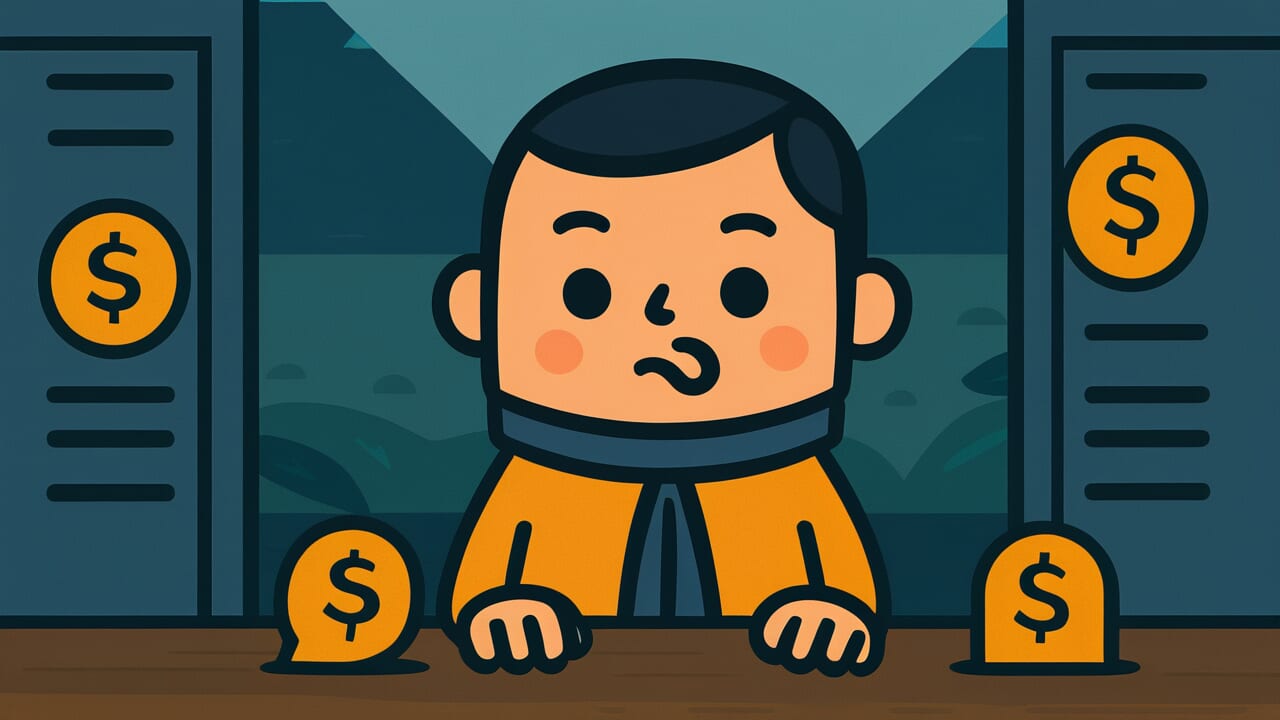How to Read “Money hides stupidity”
Zeni wa baka kakushi
Meaning of “Money hides stupidity”
“Money hides stupidity” means that when someone has money, their foolishness and personal flaws become less visible to others. When people have wealth, others tend to overlook or avoid pointing out their lack of education, poor judgment, or character problems.
Money’s outward power covers up inner immaturity.
This proverb is used when wealthy people are treated as more capable than they really are. It also applies when someone gains respect purely through financial power.
People use it to point out situations where behavior that should be criticized gets a pass because the person has money. The saying expresses with irony how money greatly influences social evaluation and makes it hard to see someone’s true nature.
Origin and Etymology
The exact first written appearance of this proverb is unclear. However, it was widely used among common people during the Edo period.
The phrase consists of three elements: “zeni” (money), “baka” (stupidity), and “kakushi” (hiding). Each reflects the social views of that time.
The Edo period saw commercial development and deep penetration of monetary economy into daily life. While the samurai class officially looked down on money, townspeople culture recognized the real power of “zeni.”
Against this backdrop, common people had sharp observations about money’s social power.
“Baka” referred not just to low intelligence but to lack of education and human flaws in general. The verb “kakushi” indicates the act of deliberately covering something up.
This proverb captures a social phenomenon that Edo people witnessed daily. Outward wealth makes inner flaws invisible.
The ironic truth about human society that people perceived during the rise of merchants and monetary economy is condensed into these few words.
Usage Examples
- That company president has made many wrong business decisions, but nobody criticizes him. Money hides stupidity indeed.
- He lacks education, but people fawn over him because he’s wealthy. Money hides stupidity is so true.
Universal Wisdom
“Money hides stupidity” sharply points to the essence of evaluation in human society. We rationally know we should judge people by their character.
Yet we are actually heavily influenced by outward factors, especially economic power. This contradiction is an unchanging part of human nature.
Why do people overlook the flaws of the wealthy? It may be rooted in survival instinct. Maintaining relationships with rich people might bring personal benefits.
Such calculations work unconsciously. Also, when faced with money as clear proof of success, people want to believe “this person must have something excellent about them.”
Affirming successful people helps stabilize our own values.
Thinking deeper, this proverb reveals the essence of power structures. Money is not just a means of exchange but social power itself.
Before that power, people hesitate even to speak truth. Maintaining relationships takes priority over honest evaluation. Such dynamics of human society have existed across all times and places.
Our ancestors did not look away from this inconvenient truth. They expressed it in simple words. It was both a warning and self-reflection.
We ourselves may unknowingly view people through the lens of money.
When AI Hears This
When we see wealthy people, our brains unconsciously judge “this person must be smart too.” This is the halo effect in cognitive science.
What’s interesting is that this effect is not one-way.
When others evaluate someone as “wealthy therefore competent,” that person receives far fewer opportunities to have their flaws pointed out. For example, even if they make an off-target comment in a meeting, people interpret it favorably as “the boss must have deep thinking.”
Money’s light is so strong that it makes others unable to see the person’s shadow side.
More important is the issue of cognitive load. The human brain has limits on how much information it can process at once.
Poor people are constantly forced to solve problems in daily life, using their brain’s full resources. Meanwhile, money lets people solve many problems through external services, so the brain enters energy-saving mode.
Here a paradox emerges. Wealthy people delegate self-evaluation to others as “external memory devices” and no longer need to view themselves objectively.
As a result, they stop using cognitive resources for self-improvement. Poverty sharpens people because the brain is constantly forced into battle readiness. Wealth dulls people because the brain chooses rest.
Lessons for Today
This proverb teaches us the importance of examining our own standards when evaluating people. When you judge someone, are you influenced by their title or economic power?
What truly matters is how they act, what values they hold, and how they relate to others.
Especially in today’s social media age, outward wealth is easily staged. Some people gain more evaluation than they deserve by displaying luxury goods and glamorous lifestyles.
That’s why cultivating the ability to see essence without being fooled by surface information is crucial.
At the same time, this proverb is a question for yourself. If you achieve economic success, people around you may find it harder to point out your flaws.
That’s when you need the attitude to view yourself objectively and keep growing. Money is certainly a tool that enriches life, but it doesn’t polish your character.
True richness includes not just economic power but inner qualities like integrity, compassion, and wisdom. Don’t be fooled by appearances and cherish what’s inside.
This proverb gives us the courage to choose such a way of living.



Comments